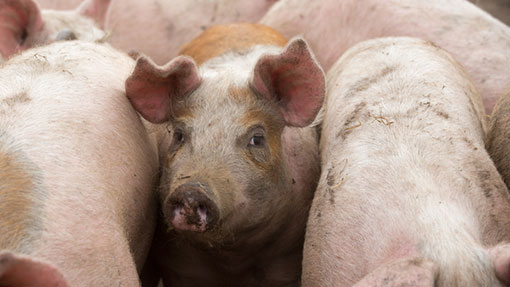Identify pig worm infestations earlier with new blood test

Pig farmers will no longer have to rely on slaughter returns to identify any worm infestations, with the launch of a blood test offering earlier detection.
An innovative test that can detect large roundworm infestations in all ages of pigs is now available through MSD Animal Health.
The Serasca Elisa is a serological (blood) test that can identify the presence of Ascaris suum, the most prevalent intestinal worm that occurs in pigs, the company says.
See also: Pig and poultry research at SRUC tied up
“Intestinal parasites can pull down growth rate and reduce feed efficiency,” says Ricardo Neto, pig vet and technical manager with MSD’s pig team.
“Infections can also increase the pigs’ sensitivity to other disease challenges and affect vaccine efficacy, in particular those used to control respiratory disease.
“Large roundworms are also associated with a deterioration in fertility in adult breeding stock and reduced milk production in lactating sows. If such infections remain unchecked then the impact on herd productivity can be quite significant.”
MSD estimates that a persistent worm infestation could be costing some herds in the region of £8 a finished pig.
Diagnosing the problem effectively and implementing a strategic worming programme can control the problem and help to put performance and profitability back on track.
MSD says the new blood test is more robust than monitoring faecal egg counts and/or the assessment of livers for milk spots at slaughter. It can pick up parasite activity early on in the lifecycle.
It is sensitive and can establish the level of worm burden in a batch of pigs and is also highly accurate with minimal possibilities for “false negatives”, as can happen with faecal monitoring if samples are collected during a period of low egg shedding, the company says.
Blood samples are taken and analysed for the presence of specific antibodies against Ascaris suum haemoglobin (AsHb), which indicate parasite activity.
Validated by the University of Ghent, Belgium, the MSD service is available to producers through their veterinary surgeons.

